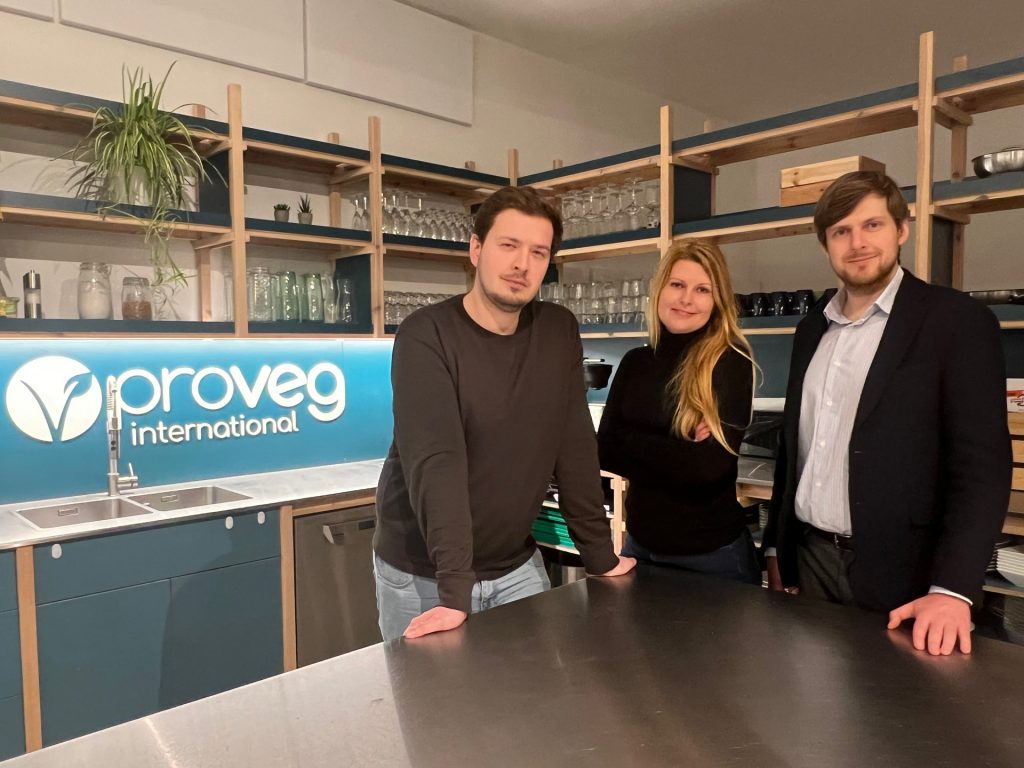The first cohort of impact-driven startups of 2022 is kicking off today at the ProVeg Incubator. We’re onboarding seven pioneering companies from Colombia, Israel, the US, Canada, India, and Europe in what is the 8th edition of our world-renowned alt-protein accelerator programme.
Over the next 12 weeks, we’ll be working closely with these companies. Our job is to support them in building their mission-driven businesses, with the aim of reducing the consumption of animals by 50% by the year 2040.
From mushroom-based ingredients to cultured fat to animal-free egg protein, these founders are spearheading an array of ground-breaking projects. Without further ado, let’s meet our latest seven impact-driven startups.
Fotortec: tackling the universal challenge of food waste, in a new way
Fotortec develops mushroom-based ingredients for the alt-protein industry, using oyster mushrooms that grow on vegetable waste. Globally, every year, about 46% of the fruit and vegetables produced for human consumption are thrown away.
Using a business model that is both scalable and circular, this startup is addressing the universal problem of food waste while supplying plant-based food manufacturers with innovative new ingredients. The team at Fotortec can upcycle vegetable side-streams anywhere in the world, using a unique technological process that mimics the way vegetable biomass is recycled in nature.
The company currently offers a line of three products. This includes a protein isolate packed with 18 amino acids, a flavour enhancer that cuts sodium content and CO2 production by 90%, and a customisable meat-like texturiser. All Fotortec products are designed to bring eco-positive plant-based nutrition to consumers from all walks of life.
Rami Jadaa and Felipe Le Blanc founded the company in Colombia in 2014. They have since also expanded to Chile and the US.
OceanTastes: eel and oysters, anyone?
OceanTastes aims to produce cultured seafood using proprietary technologies in cell-line isolation, cost-effective serum-free media, and plant-based scaffolding. The company’s vision is to address global food challenges by reducing animal consumption while ensuring nutritious food and preserving flavour.
The team has extensive experience in bioprocessing for scaling up high-value food products such as American eel and Eastern oysters. OceanTastes’ marketing strategy is based on creating channels with conventional seafood industries and food-manufacturing companies in long-term agreements, as well as delivering products directly to consumers.
Peter (Sepehr) Nesaei, Reza Ovissi, and Nitin Nitin founded OceanTastes in 2021 in the USA.




